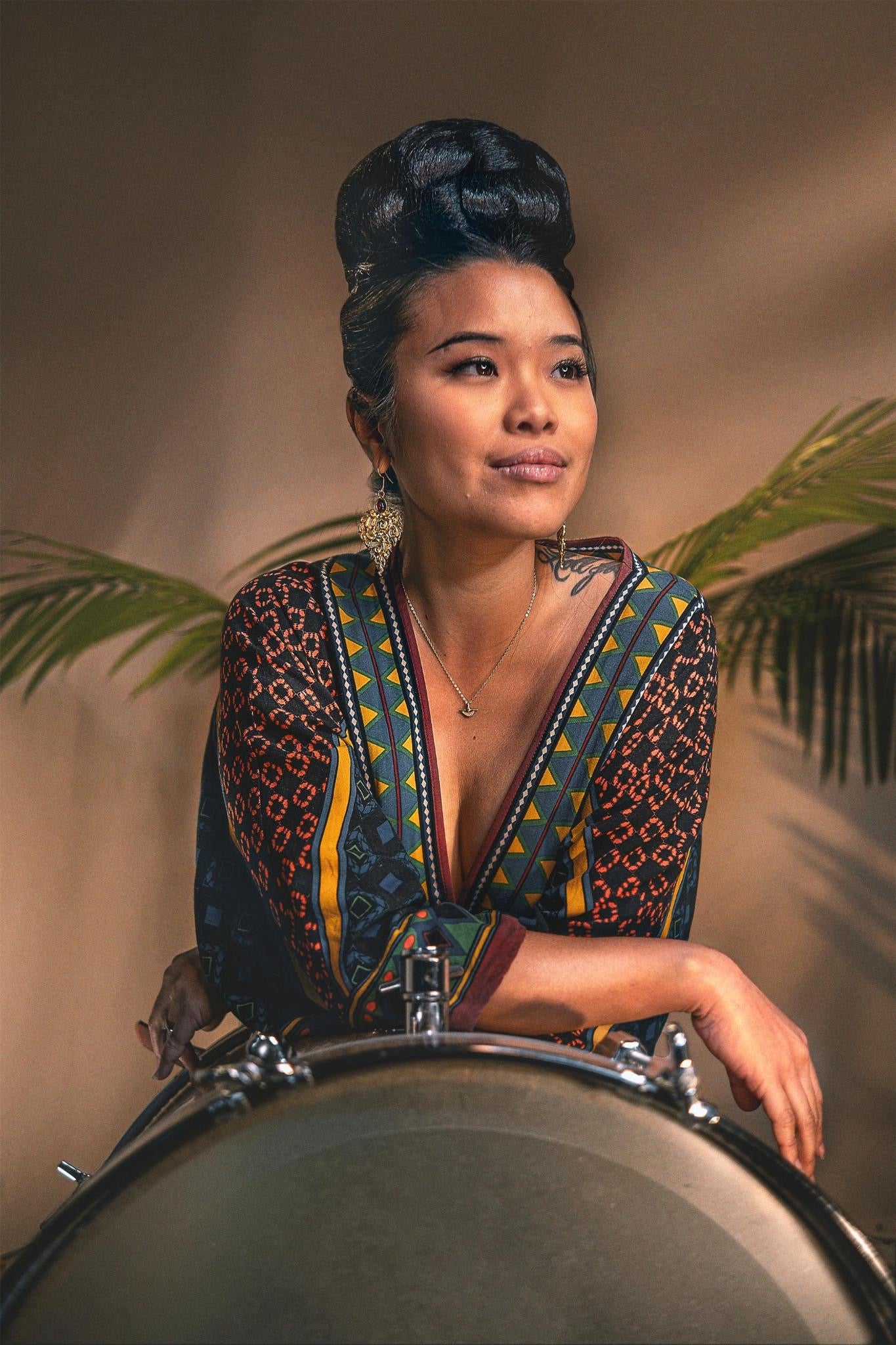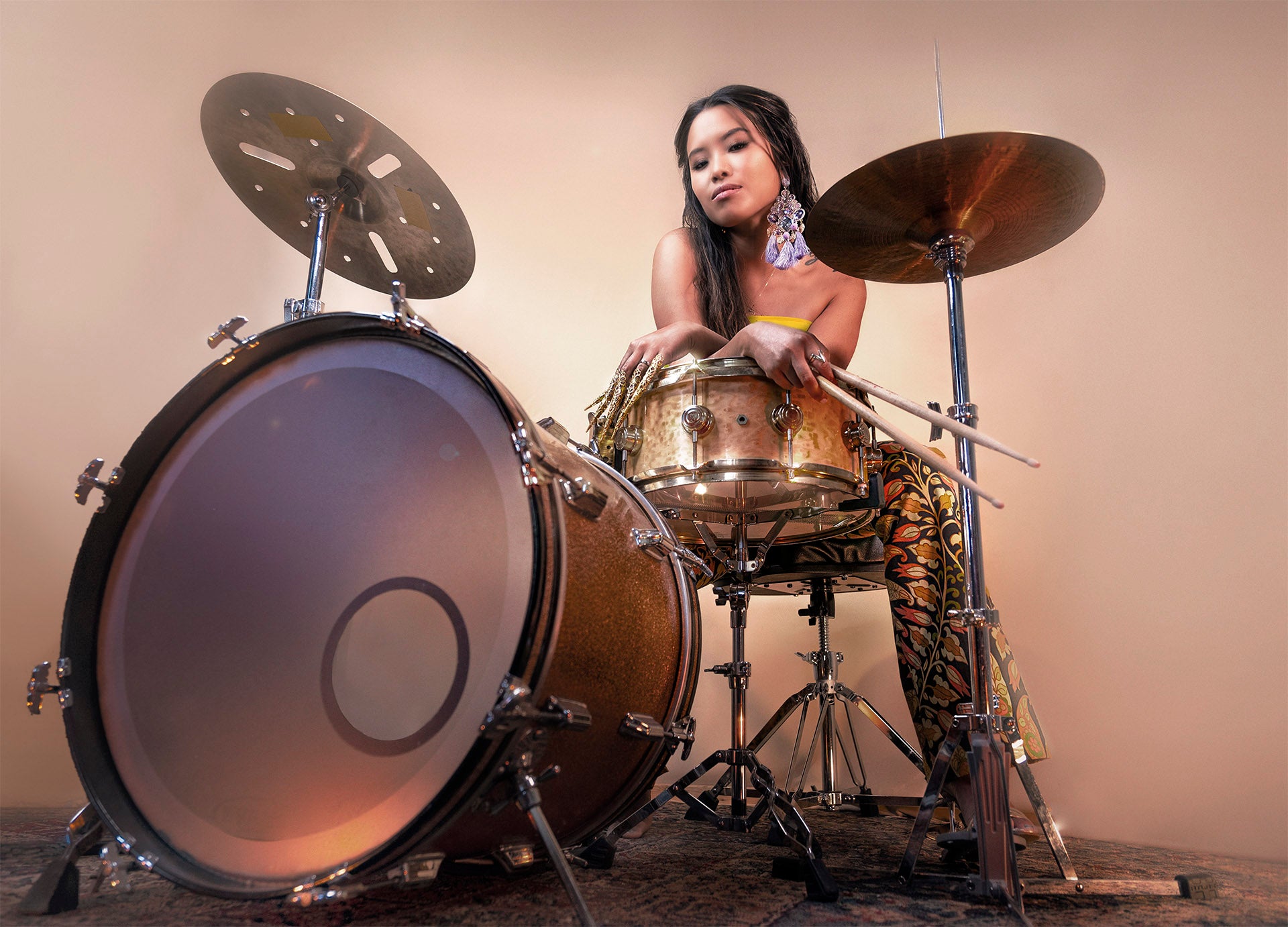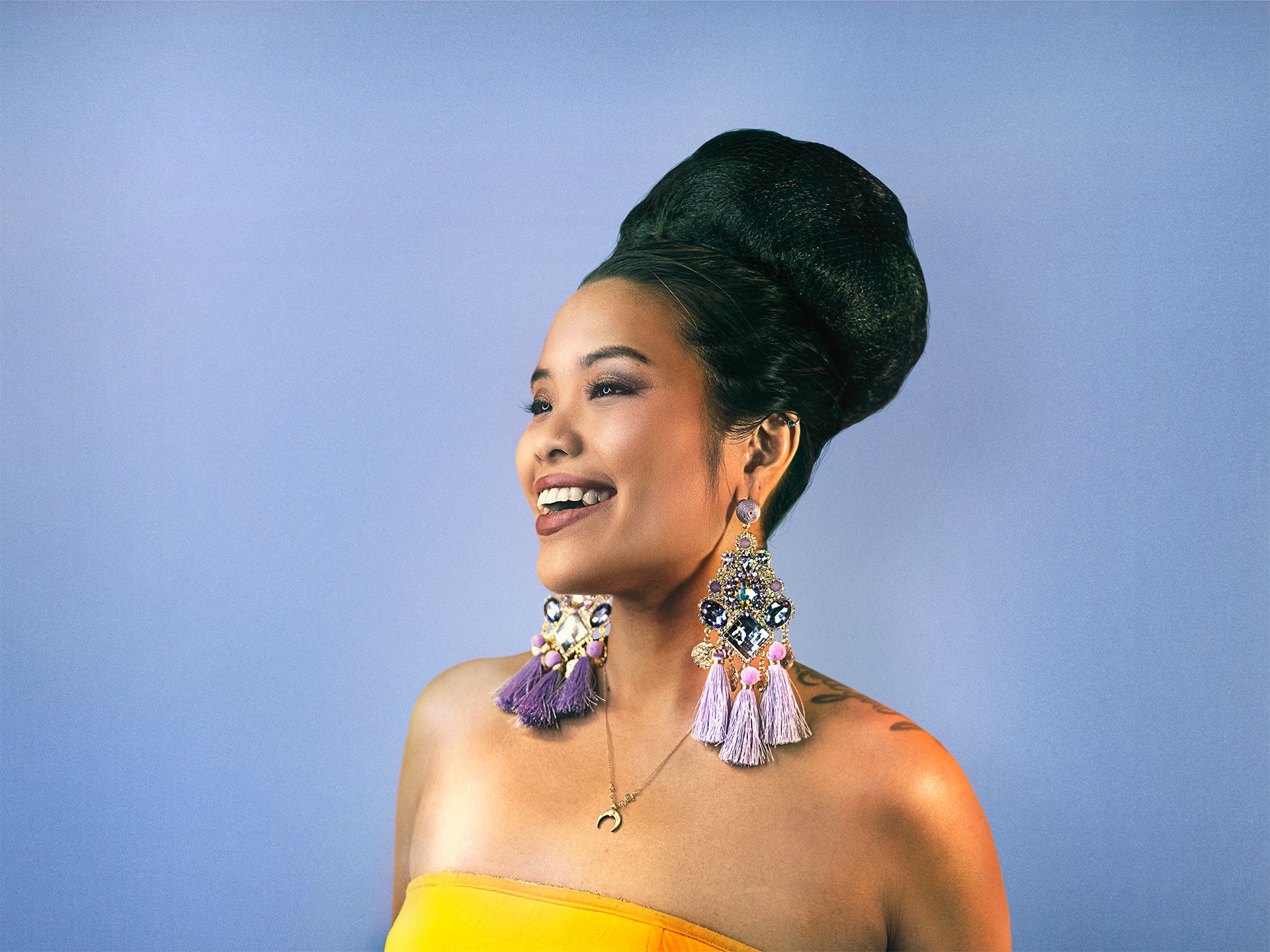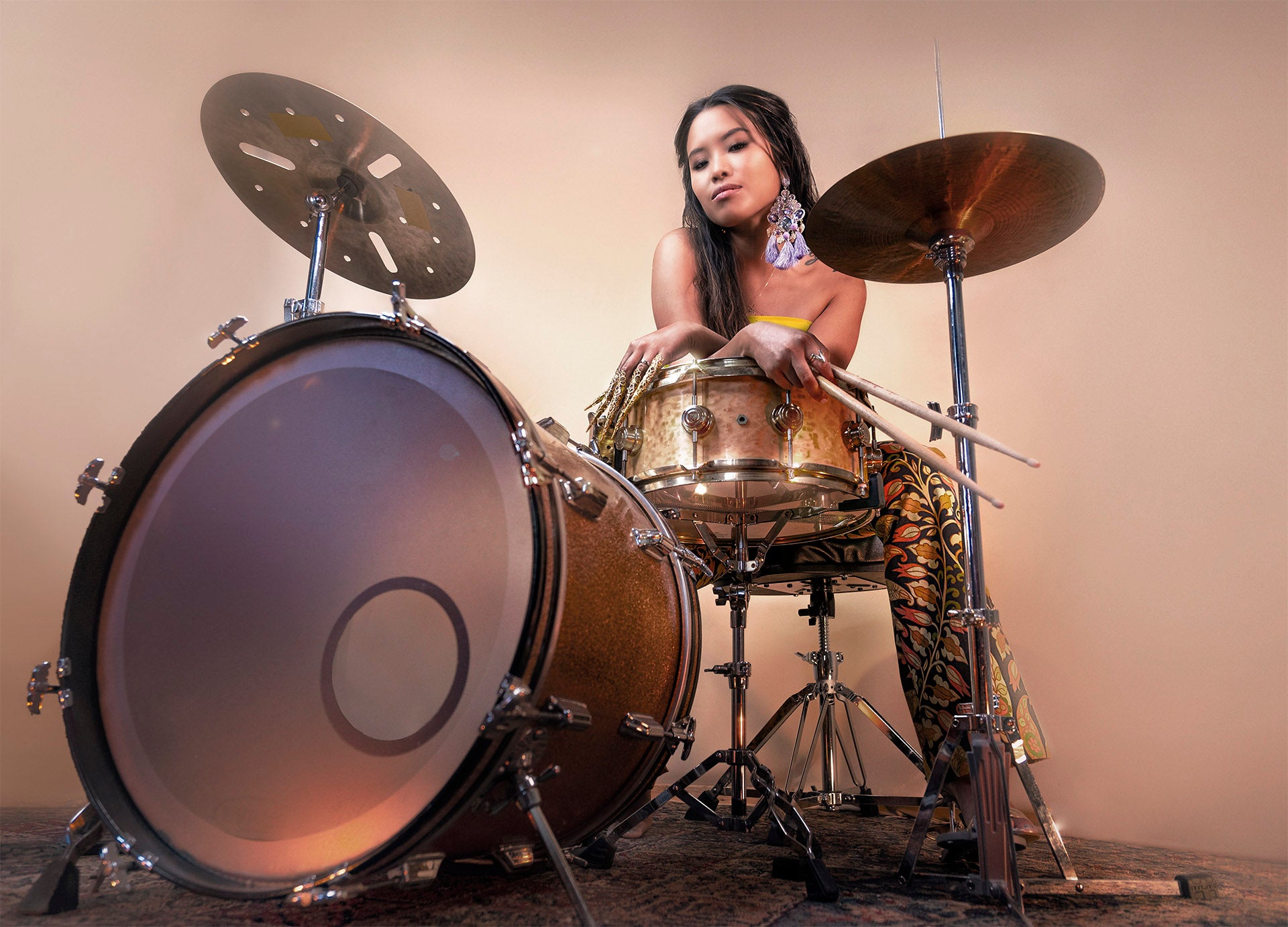
"Rammana": A Conversation with SALIN
Interview by Imani Dominique Busby
Photography by Lucas Zafiris
In this conversation, Montreal-based artist SALIN takes us on a journey through the creation of Rammana, an album that weaves together a rich tapestry of global sounds, histories, and compsitions. From the folk traditions of Northeast Thailand to the polyrhythms of Afro-diasporic music, SALIN shares how a desire to reconnect with cultural roots and explore identity, spirituality, and humanity shaped the album’s creation. With a producer’s vision and a drummer’s intuition, SALIN speaks about finding harmony a midst difference—blending Indigenous instruments like the bamboo harp with soulful grooves, Thai funk, and jazz. What emerges is not just a collection of songs, but a deeply intentional body of work that invites listeners on a cross-cultural exploration of rhythm, memory, and transformation.
Your music combines a rich mix of cultural influences from the sounds of Northeast Thailand to 70s West African psychedelia. How do you approach blending these diverse musical elements? And what is your creative process like when experimenting with these genres?
I didn't know much about Thai music when I was writing the first part of the album, so I made a mission to learn more about it. So I first went to Northeast Thailand on a 10 day trip where I discovered the Malam genre, a form of Indigenous and folk music. I researched that and then went to the south where I learned more about the culture there. Once I got those influences, I began experimenting with how to mix them. I wanted to blend genres that I really love: the polyrhythmic rhythms of Afro Diaspora, funk, and Thai funk. I also love jazz and soul, so all of those elements together. And then I was like, “Why don't I sprinkle a little Thai influences on top of that?” I also recorded a lot of musicians in different tribes that made it to the album.
"Puaj" has such a unique sound. It's the first time that I've heard the bamboo harp in a record. What is it about the bamboo harp that captivated you and how does it tie into your larger vision for the album?
It was actually the first time I ever heard that too. And it was the way he played it. I hear a rhythm and I’m like, “Oh, my God, this is so sick." And you can find the bamboo harp in in Indonesia, Japan, Philippines, and across Africa. So it's a symbolic instrument in the sense that at one point in time, we all have the same notes and we even have same instruments that we used very similarly to communicate. Music was a way of communication.
How does the exploration of themes like identity, spirituality and humanity manifest in the new album? Are there any particular songs that you feel most embody those concepts?
I think "Rammana" really embodies that concept because the Rammana is an Indigenous drum and also Indigenous song of the Uragla that lives in the south of Thailand. They are Indigenous sea nomads that they travel through the ocean. They have roots in Madagascar, in the Southeast Asian islands, and all the way to Papa New Guinea.
My theory is that they brought the African rhythms through the ocean and then met with the local Indigenous people there. This then birthed the Rammana song, which is the song that you hear in the album. But I remade it in a way that asks, “How would Rammana be song today? What if the harmony is more rich? What if it's, like, more popular?” Like, not popular, but more produced, more recorded. And that's how it became that single.
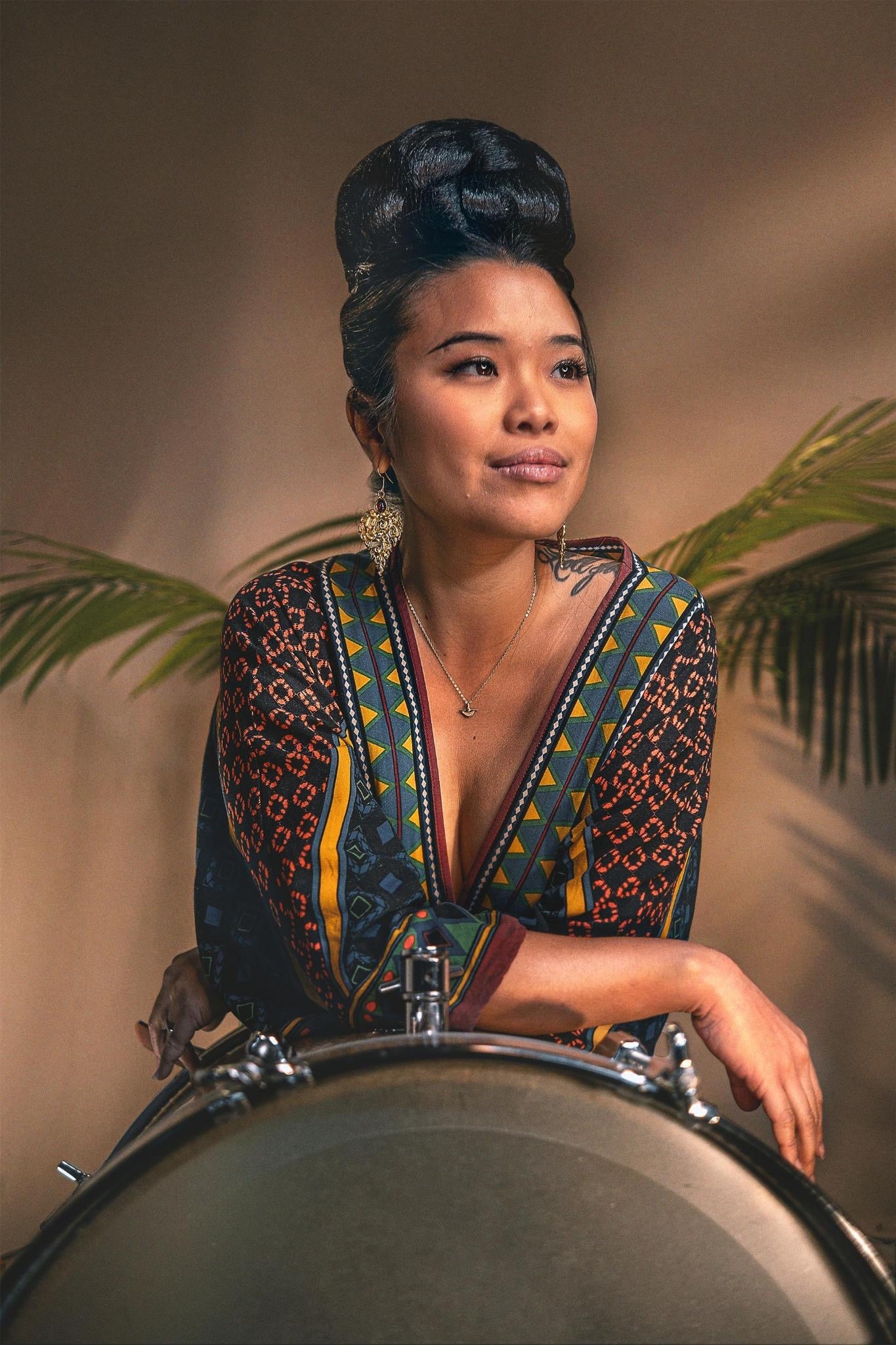
As a drummer and a producer, how do you balance your two roles in the studio? Are there any moments when one role shapes the direction of a song more than the other?
Yeah, for sure. As a drummer, I find the drum and the melody really dictates where everything else is going. But the drum itself also has the kick which is typically the bass. But it could also be the hi hat, or it could be the guitar. And then that's how, when I produce, that's how I see it too. It's like each instrument takes its own space and ways of communicating with each other to become a song.
You were born in Thailand and are now based in Montreal, Canada. How has your multicultural experience influenced your music? Has being in Montreal kind of influenced you and your music?
Growing up in Thailand, we only heard stuff from the pop charts, so I didn't really know much about soul music or Afrobeats or anything like that. And back then we didn't have the streaming services that would allow us to even hear how it sounds. There was Thai music, but I was also not exposed to it at all. You almost have to research about it. Of course there's pop Thai music, but the Indigenous music you really have to dig to find.
Montreal has such a vibrant music scene. There's solo jazz, Afrobeats, and also the French immigrants that taught Haitian Compa and all of that stuff. And I get to play with the musicians here.
So all of these influence my sound. I love anything a bit non-traditional, authentic, and different
I listened to and really loved "Egungun". Can you share a bit about why and how you created that song?
One night I was feeling something and I was trying different chords. Then I was at a session with my musicians and I was like, “I have these chords, I have these rhythms. Let's jam on it.” And Frank, he's a genius, the way he approached his guitar and he really loved those chords. He's like, “Okay, I'm gonna do triad but it's going to be inverted triad.” So those four chords become sounds like an eight chords progression. And then Donaldson played some really nice funky bass on it. I took what we created in the session and worked on them on the plane to Thailand.
I wrote some melody and it had such a like Afrobeat, desert vibe in the beginning. But also the guitar had a Thai funk sound, like it's very dreamy.
But when I was on the plane, I watched a movie called Egungun. It was a really good film and when I was watching the movie I was like, “Oh my God. The music I was making is like the soundtrack to this movie.” The film was about this lady, she was visiting her past life and like trying to be at peace with her childhood self. She's a BIPOC woman and she's married, but she used to have a girlfriend when they were kids. So she was like revisiting her old friends and finding peace with her past.
Then I took the song to Thailand and I met this trumpet player. From the first time I saw him I knew I needed to work with him. He came to the studio and we had so much fun. He played the trumpet over Egungun. That became the melody of the A section. My partner Lucas wrote the B section.
It’s almost like the movie. You travel back to your past, you're visiting, you tell the story of what happened, and then you have this kind of duality of what had happened and how you feel about it and how you process it. And you might go through some pain, mixing feelings and all that stuff. Eventually, if you accept your past, that's when you can set yourself free. And that's why the last section song, the melody is more open and has this feeling of victory.
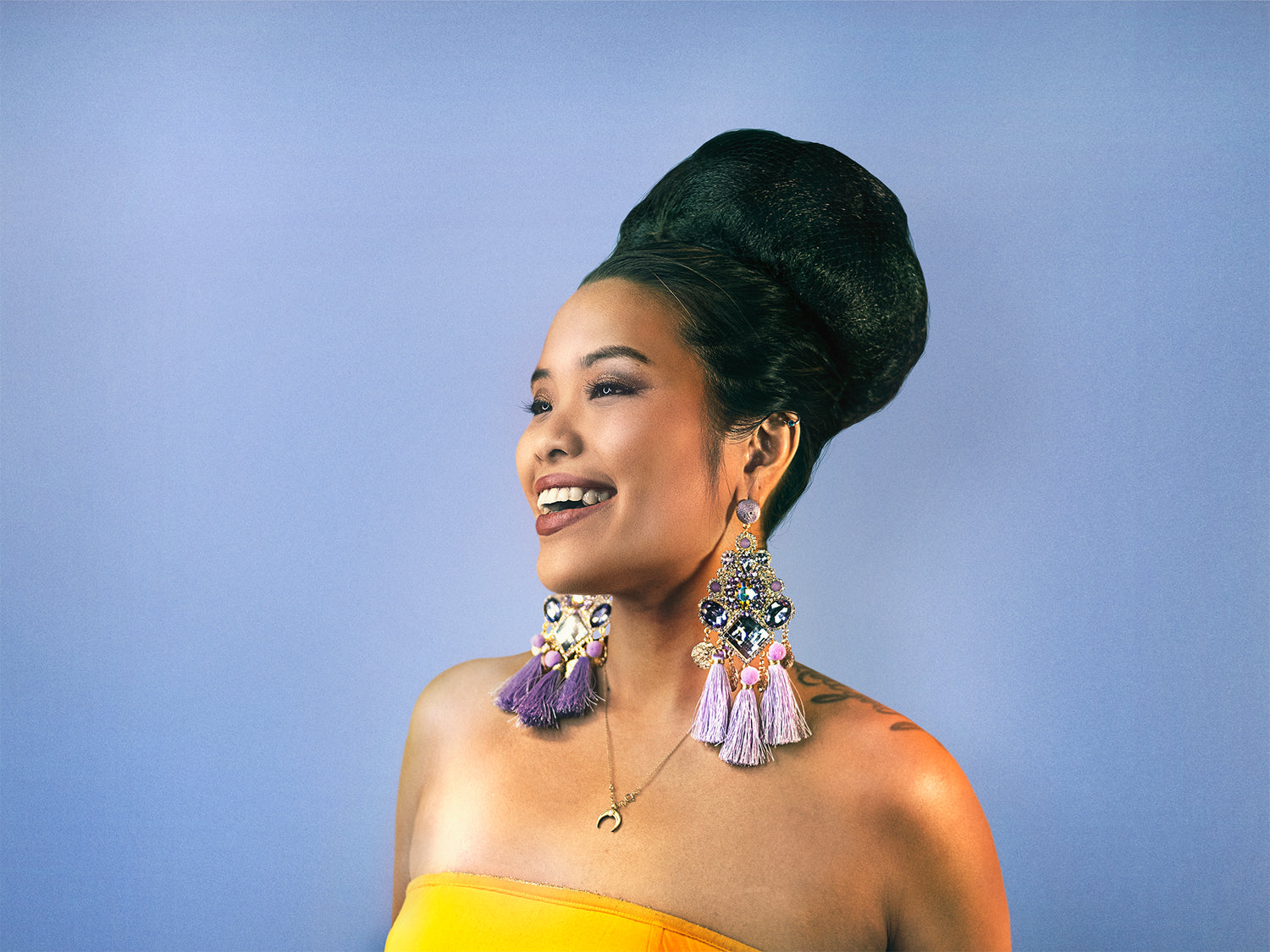
"Rammana", your second full length album, is set for release in March. Can you please tell us more about the album's concepts and what listeners can expect.
"Rammana" is almost like a trip. I really like listening to it from start to finish. If I was telling you about the story of how they came from Africa, similarly. the beginning of the album is like the Congolese rhythm that is like inviting people to come to start a journey with us. It's like "Rammana" is the celebration, people coming together.
Can you share any exciting collaborations or surprises that fans can look forward to on the album?
I love all the collaborations and I did. It was a long process, and a lot of trial and error, but I love how everybody’s uniqueness and talent came together. Like Ellie, he’s Congolese-Canadian, and the Thai vocalist that I invited to come sing. The Indigenous people that I met and I sampled, and even the Canadian musicians I met here, too.
And my partner who helped me through it all.
You said that, like, music is a universal language that transcends borders. How do you think that music can play a role in bringing people together?
I love that it can touch people and they can see themselves and even though they don't come from the same background. or, you know, might not even speak the same language and to be able to connect that way, it's pretty cool.
As you approach the release of Rammana, what are your hopes for the album and the impact that it will have on your audience?
I hope that it brings people together. I hope that it gives people joy. I hope it gives people perspective as well about humanity and how we can relate with each other.
Thank you so much.
